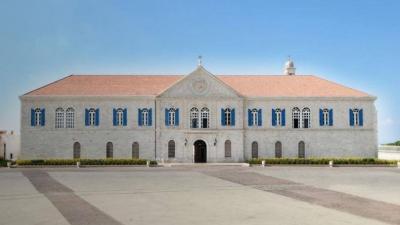After the visit of the head of the political council of "Hezbollah" at the helm of a delegation yesterday to the Maronite Patriarchate, propaganda returns to promote that there is a settlement in preparation, which dismisses the differences between the head of Bkerke and the axis represented by "Hezbollah" and its allies. It seems as if there are those who want to deceive the Lebanese, Arab, and international public opinion into believing that there is a rallying around and containment of the firm national positions of Cardinal Mar Beshara Boutros Al-Rahi.
In this context, informed sources familiar with the dynamics of Cardinal Al-Rahi's positions tell "Al Markaziya" that "there is no concession regarding the initiative for active neutrality and the call for the internationalization of the Lebanese issue; these are two strategically fundamental matters in the path of rescuing Lebanon from the clutches of the powers that prey on its identity and historical experiment, and thus, surpassing the limited protocol aspect of the visit by Hezbollah's delegation is merely wishful thinking."
So, why was the Hezbollah delegation received despite the strategic divergence? The sources state: "The Maronite Patriarchate does not close its doors to any active party, but this does not at all mean that there is any cover-up of what this party or that is doing in terms of attacks on the Lebanese constitution, democracy, confining weapons to legitimate military and security forces alone, dragging Lebanon into conflicts and axes that have nothing to do with it, isolating it from Arab and international legitimacy, and involving it in the spread of corruption, topped by the violation of land, sea, and air facilities, and obstructing the investigation into the Beirut port explosion."
Dialogue is welcomed but within national constants, and Bkerke is entrusted with these constants, not playing a political role. Regarding the internationalization of the Lebanese issue, the informed sources insist that this "path has taken its course on multiple levels and is ongoing through dialogue even with the Lebanese diaspora in all capitals of decision. Its goal is to achieve a minimum balance in the distorted balance of power that has a negative parity in the dynamic confrontation between sovereign forces and the axis of resistance, and consequently, the goal is to serve the Lebanese people, even those who have lost their way."
These same sources believe that those who "call for dialogue should implement the constitution" and urge them to "learn from history. Lebanon is too great to be subdued, absorbed, or harnessed to non-Lebanese agendas, and those who feel they have surplus power will realize that this surplus is temporary, and Lebanon, as a civilizational issue, will prevail."




